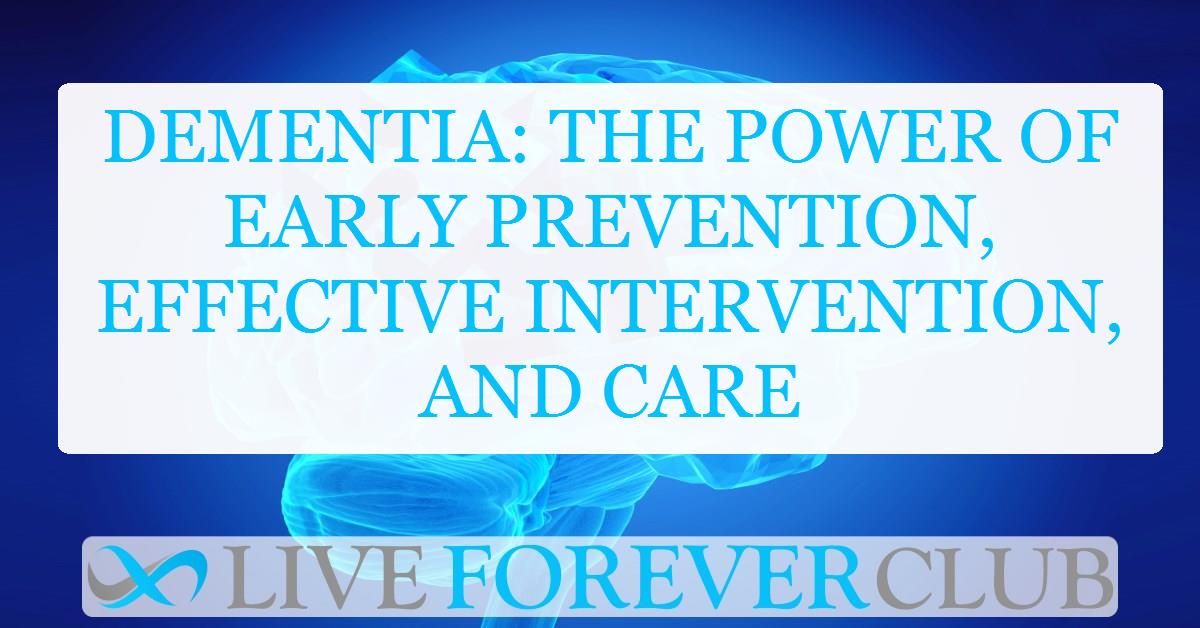Dementia affects millions of people globally and continues to rise as populations age. However, the 2024 Lancet report offers hope, indicating that nearly half of all dementia cases can be prevented through a series of interventions addressing modifiable risk factors.
With the growing body of research, our understanding of dementia prevention and care has evolved significantly, pointing to concrete actions that individuals and policymakers can take to slow down or prevent cognitive decline.
Understanding Dementia: A Global Challenge
The 2024 update to the Lancet Commission report emphasizes the increasing number of people living with dementia globally, projected to triple by 2050. Dementia is not a specific disease but a term used to describe a group of conditions that affect memory, thinking, and social abilities. Alzheimer’s disease is the most common cause of dementia, but there are several others, including vascular dementia and Lewy body dementia.
This report reiterates that while there is no cure for dementia, prevention and intervention strategies targeting modifiable risk factors can significantly reduce the risk of developing it.
Key Modifiable Risk Factors
The report identifies 14 modifiable risk factors that can contribute to nearly 50% of dementia cases. These risk factors range from lifestyle choices to broader environmental and social factors. The following is a breakdown of these risk factors:
Less Education
Low levels of education early in life are associated with an increased risk of dementia. Educational attainment plays a critical role in building cognitive reserve, which helps individuals cope with neuropathological changes later in life.
Hearing Loss
Untreated hearing loss in midlife is linked with an increased risk of dementia. The report highlights that treating hearing loss, particularly through hearing aids, can mitigate this risk, improving cognitive function and quality of life.
Hypertension
High blood pressure in midlife contributes to vascular dementia, highlighting the importance of managing hypertension to reduce the risk of cognitive decline.
Smoking
Smoking is harmful to both physical and cognitive health. The report urges strong policy measures such as public education and smoking cessation programs, which could lead to reduced dementia rates.
Obesity
Obesity, particularly in midlife, is linked with higher dementia risk. Maintaining a healthy weight can prevent obesity-related health issues like hypertension and diabetes, which are significant dementia risk factors.
Depression
Depression is another modifiable risk factor, particularly in midlife. Treating depression not only improves mental health but may also reduce the likelihood of dementia.
Physical Inactivity
Physical activity promotes overall brain health. Encouraging regular exercise can reduce dementia risk by enhancing cardiovascular and cognitive health.
Diabetes
Diabetes, particularly type 2 diabetes, significantly increases the risk of dementia. Effective management of diabetes through lifestyle modifications and medical interventions can lower this risk.
Excessive Alcohol Consumption
The report defines excessive alcohol consumption as more than 21 UK units (equivalent to 12 US units) per week. Excessive drinking can damage brain cells and increase the risk of dementia. Reducing alcohol intake is key to maintaining brain health.
Traumatic Brain Injury (TBI)
TBI, at any stage of life, increases the risk of dementia. The report suggests promoting head protection and minimizing high-impact collisions in sports to reduce TBI-related cognitive decline.
Air Pollution
New evidence links air pollution with cognitive decline, emphasizing the need for cleaner environments to protect brain health. This finding is particularly relevant in urban areas where pollution levels are high.
Social Isolation
Loneliness and social isolation can increase the risk of dementia. The report calls for creating supportive, age-friendly communities that encourage social engagement to combat isolation in the elderly.
Vision Loss
Like hearing loss, untreated vision impairment increases the risk of dementia. The report recommends routine eye care and early treatment for vision problems.
High LDL Cholesterol
High levels of LDL cholesterol have been newly identified as a risk factor. Managing cholesterol through diet and medication can contribute to dementia prevention.
Prevention is Possible: Life-Course Interventions
The Lancet report emphasizes that dementia prevention should begin early in life and continue throughout adulthood. While some risk factors are associated with midlife, interventions at any stage of life can be beneficial. Early intervention, such as education and managing health conditions like hypertension or diabetes, can significantly reduce the risk of dementia later in life.
For example, addressing hearing loss early can reduce the cognitive load on the brain, preventing the acceleration of dementia symptoms. Similarly, tackling high blood pressure in midlife can reduce the chances of vascular-related cognitive decline.
The potential to prevent dementia is especially significant in low- and middle-income countries (LMICs), where risk factors such as less education, obesity, and social isolation are more prevalent. Targeted interventions in these areas can prevent early-onset dementia and improve overall cognitive health across populations.
Why Education and Mental Stimulation Matter
The report highlights the importance of cognitive reserve, the brain’s ability to cope with damage while still functioning relatively well. Individuals with higher cognitive reserve can delay the onset of dementia symptoms even if their brains show neuropathological changes.
One of the most effective ways to build cognitive reserve is through education. High levels of educational attainment, particularly in childhood, can help individuals maintain cognitive function later in life. Mental stimulation in midlife, such as engaging in cognitively demanding work or hobbies, also helps build this reserve. This means that the brain becomes more resilient to age-related changes, allowing people to live longer, dementia-free lives.
Role of Policy in Dementia Prevention
Prevention isn’t just an individual responsibility—it requires coordinated action at the policy level. The Lancet Commission advocates for national and international policy changes that prioritize dementia prevention. This includes implementing anti-smoking laws, improving access to quality education, creating age-friendly urban environments, and addressing air pollution.
The report also calls for improving access to hearing aids, eye care, and mental health services. For example, making hearing aids more affordable and accessible can have a significant impact on dementia rates, particularly among older adults. Similarly, improving access to mental health care can help prevent depression and anxiety, both of which are linked to cognitive decline.
Policymakers are urged to design interventions that consider equity. Marginalized populations, including low-income groups and minoritized ethnic communities, often face a higher burden of risk factors. Tailored interventions, aimed at increasing access to education, health services, and social support for these groups, will help bridge the gap in dementia outcomes.
Living Well with Dementia
For individuals already diagnosed with dementia, the Lancet report emphasizes the importance of living well with the condition. While there is currently no cure, interventions can improve quality of life, reduce hospitalizations, and support family caregivers.
Multicomponent interventions that address neuropsychiatric symptoms and provide support for carers have proven effective. These interventions can be customized based on individual needs, helping families manage the cognitive and behavioral symptoms of dementia.
The use of cholinesterase inhibitors and memantine for Alzheimer’s disease and Lewy body dementia continues to be recommended. These medications slow cognitive decline and improve functioning. Although they are available in many high-income countries, access in low- and middle-income countries remains limited, underscoring the need for equitable healthcare access globally.
The report also points to new evidence on the impact of anti-amyloid-β antibody treatments. These treatments have shown modest success in slowing cognitive deterioration, particularly in individuals with mild disease. However, their high cost and intensive monitoring requirements pose challenges for widespread use, particularly in health systems that are already resource-constrained.
Hope and Challenges
The 2024 Lancet Commission report offers a hopeful outlook on dementia prevention. Nearly 50% of dementia cases can potentially be prevented through interventions targeting 14 modifiable risk factors. Education, hearing, cardiovascular health, and mental well-being are central to the fight against dementia, highlighting the importance of a life-course approach.
However, challenges remain. The rise in dementia cases globally, especially in low- and middle-income countries, emphasizes the need for targeted interventions that address social inequities. Policymakers, healthcare providers, and individuals must work together to implement strategies that promote brain health and delay the onset of dementia.
Empowering Individuals and Communities
Dementia is a global challenge, but as the Lancet Commission highlights, it is a challenge we can face head-on. By addressing modifiable risk factors and making strategic policy interventions, we can significantly reduce dementia risk for future generations. Whether it’s through lifestyle changes, improving access to healthcare, or making our cities more age-friendly, we all have a role to play in dementia prevention.
As the report emphasizes, it's never too early—or too late—to take action. The choices we make today can help us live healthier, more cognitively resilient lives, well into the future.
The study was carried out by Prof Gill Livingston and team from University College London and is published in the journal The Lancet.







